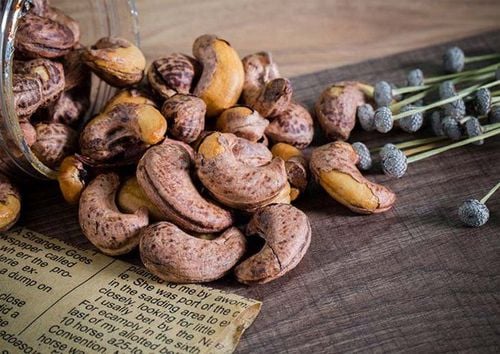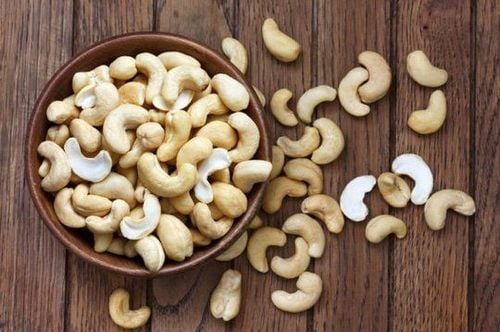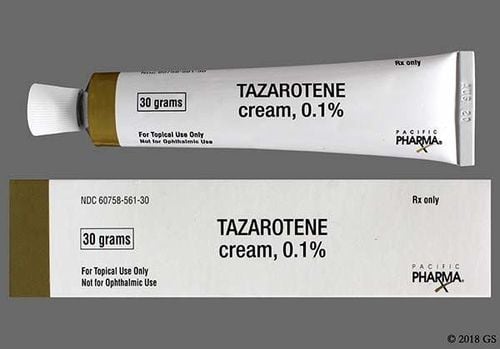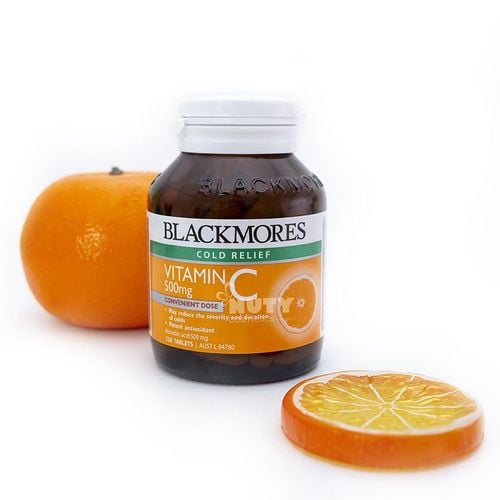This is an automatically translated article.
Cashew nuts are not only classified as a healthy snack with delicious taste, but also considered as a food that provides many important nutrients that bring many health benefits, such as vitamins, minerals, antioxidants. oxidizing... So is it good for children to eat cashews?
1. Cashews and the nutritional value of cashews
Cashew nuts originate from Brazil and have been known in Vietnam since the 1980s with their delicious, greasy taste. Besides, this type of seed also has a high nutritional value, so it is loved by many people around the world. At present, Vietnam has also become one of the three countries that export cashew nuts in the world and cashew nuts in Vietnam are commonly grown in the Central Highlands, South Central Coast, and Dak Lak provinces. ..
It is no coincidence that cashews are classified as a group of nutritious foods chosen by consumers. The nutritional composition of cashews is quite rich with a high content of nutrients such as protein, essential minerals such as calcium, copper, magnesium, iron, phosphorus, potassium and zinc.
In addition, the composition of cashew nuts contains a small amount of sodium. Not only that, the vitamin composition in cashew nuts is very diverse with very important vitamins for the body such as vitamin C, B1, B2, B3, B6, folate - vitamin B9, vitamin E, vitamin K. In particular, with foods of plant origin, cashews also contain significant amounts of monounsaturated acids and polyunsaturated fatty acids such as oleic acid, and the composition of cashews does not contain cholesterol, causing harmful effects. negative for the body.

Giải đáp trẻ em ăn hạt điều có tốt không?
2. Are cashews good for children?
Cashew nuts have the effect of helping to prevent heart-related diseases. The nutritional composition of cashews is quite rich with nutrients in which healthy fatty acids are essential to help the body absorb fat-soluble vitamins such as vitamin A, vitamin D, vitamin E, vitamin K and other nutrients. This ingredient also helps the body produce important fatty acids that help brain development. Fat in cashews includes both monounsaturated fat and polyunsaturated fat, both of which are very good for the heart and also help reduce bad cholesterol (LDL cholesterol) if taken into the body. in the wrong dose. Cashews support and promote eye health. We all know about the effects of carrots on eye health. And similarly, cashews also contain nutrients that bring many benefits to eye health. The nutrient profile in cashews contains high levels of lutein and zeaxanthin, both compounds that act as antioxidants when consumed regularly. In addition, these compounds help protect the eyes from damage and may even reduce cases of cataracts. Cashews help strengthen muscles and maintain a healthy nervous system. Magnesium is quite common in the composition of cashews, is also an important substance for the development of bones, muscles, tissues and organs of the body. Furthermore, magnesium helps maintain blood pressure and strengthens the immune system, or maintains nerve function while keeping bones strong. Consequences of magnesium deficiency can lead to a number of symptoms such as high blood pressure, migraines, aches, and fatigue. Not only that, cashew nuts are also effective for menopausal women to help their sleep more comfortable and pleasant at night. Cashews help reduce the risk of diabetes. The sugar content in cashews is very low and does not contain harmful cholesterol, so cashews are quite safe for patients at risk of diabetes or patients with diabetes. In addition, cashew nut extract can help the body improve insulin response and can reduce the progression of the disease, helping to regulate blood sugar levels appropriately and stably, thereby helping to reduce blood sugar levels. risk of type 2 diabetes. Cashews have anti-cancer effects with powerful antioxidant compounds such as anacardic acid, cardanol and cardols. These compounds have quite a few benefits for patients being treated for cancer and tumors. In addition, the compound Proanthocyanidins contained in cashew nuts also works against and prevents cancer cells from dividing and this compound belongs to the group of flavonoids. This is also the most prominent benefit of cashews for health. Cashews also help promote the formation of red blood cells. Copper minerals in cashews are quite rich, and have the effect of supporting metabolism along with the production of red cells. Not only that, copper in cashews also helps to strengthen bones and strengthen the body's immune system. Is it good for children to eat cashews? Cashews help promote bone and dental health. In addition to the minerals mentioned in cashew nuts, it is impossible not to mention that the phosphorus content provided by cashew nuts is quite abundant. This compound helps to develop strong bones and teeth and also works in protein synthesis, absorption of carbohydrates and fats to help maintain the health of cells in the body. Cashew nuts help prevent gallstones - diseases related to the digestive tract, often appear cholesterol stones due to cholesterol accumulated in the gallbladder. Then, regularly consuming cashews can help reduce the process of stone formation in the gallbladder. Is it good for children to eat cashews? Cashew nuts contain rich zinc content, which plays an important role in strengthening the immune system, fighting infections and also participating in protein synthesis and wound healing for the body. In addition, zinc also has an important effect on pregnant women and the development of the fetus in the first years of life to maintain a healthy body for the child. Cashew nuts help prevent anemia of the body. The source of iron from cashew nuts for the body is quite rich. This compound is essential for oxygen transport in the body and helps to improve both enzyme activity as well as the immune system. If iron is not provided enough in the daily diet, it can make the child's body tired, and increase the likelihood of infection by the effects of the outside environment.

Hạt điều giúp tăng cường sức khỏe của xương và răng miệng
3. A few notes when feeding cashews to children
Cashew nuts have a lot of health benefits, especially for children, but when using cashews for this object, parents need to be careful. Because children's bodies are still immature, they cannot absorb nutrients from cashews like adults.
For children with symptoms related to the throat such as cough or hoarseness, parents should not let children use cashews. Because the fats in cashews will affect the mucous membranes and lead to more severe hoarseness and possibly loss of voice.
Parents should use an appropriate amount for the age of the child and the time of use. If you feed your baby too much and eat it before bedtime, it can make your baby's stomach full and make it difficult for him to sleep. So parents can feed their children about 3 to 4 times a week and about 16 seeds each time. If children are under 3 years old, parents should grind cashews into milk so that children can use them easily and help absorb nutrients better.
Please regularly visit Vinmec.com website and update useful information to take care of your baby and family.













